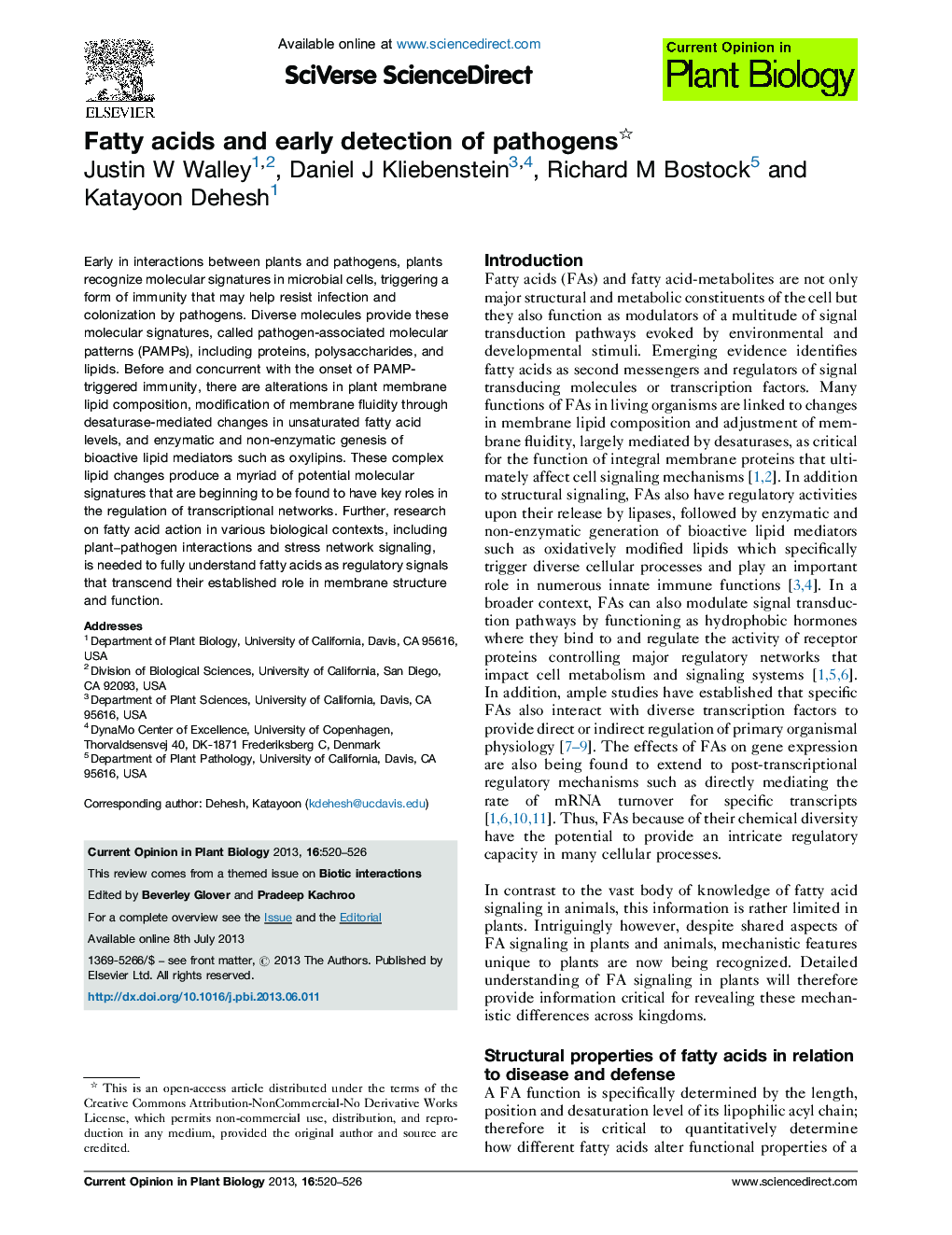| Article ID | Journal | Published Year | Pages | File Type |
|---|---|---|---|---|
| 10869420 | Current Opinion in Plant Biology | 2013 | 7 Pages |
Abstract
Early in interactions between plants and pathogens, plants recognize molecular signatures in microbial cells, triggering a form of immunity that may help resist infection and colonization by pathogens. Diverse molecules provide these molecular signatures, called pathogen-associated molecular patterns (PAMPs), including proteins, polysaccharides, and lipids. Before and concurrent with the onset of PAMP-triggered immunity, there are alterations in plant membrane lipid composition, modification of membrane fluidity through desaturase-mediated changes in unsaturated fatty acid levels, and enzymatic and non-enzymatic genesis of bioactive lipid mediators such as oxylipins. These complex lipid changes produce a myriad of potential molecular signatures that are beginning to be found to have key roles in the regulation of transcriptional networks. Further, research on fatty acid action in various biological contexts, including plant-pathogen interactions and stress network signaling, is needed to fully understand fatty acids as regulatory signals that transcend their established role in membrane structure and function.
Related Topics
Life Sciences
Agricultural and Biological Sciences
Plant Science
Authors
Justin W Walley, Daniel J Kliebenstein, Richard M Bostock, Katayoon Dehesh,
